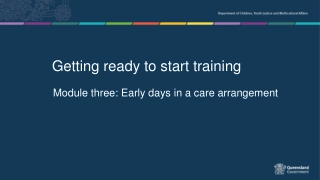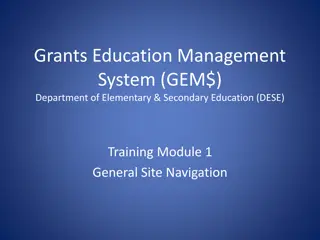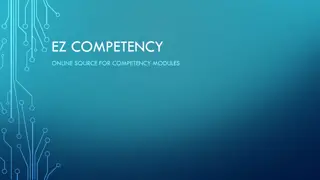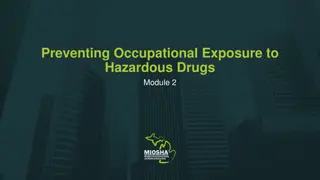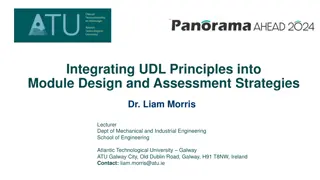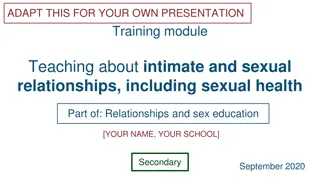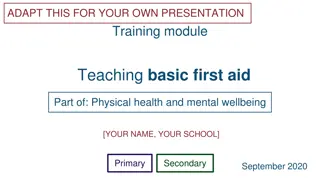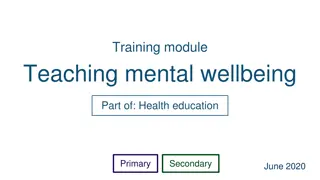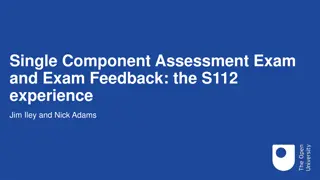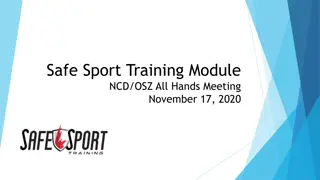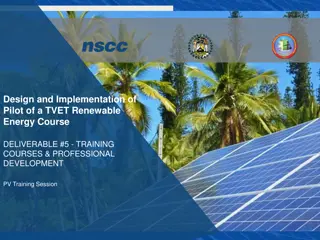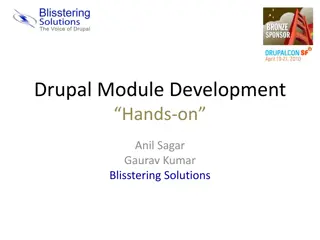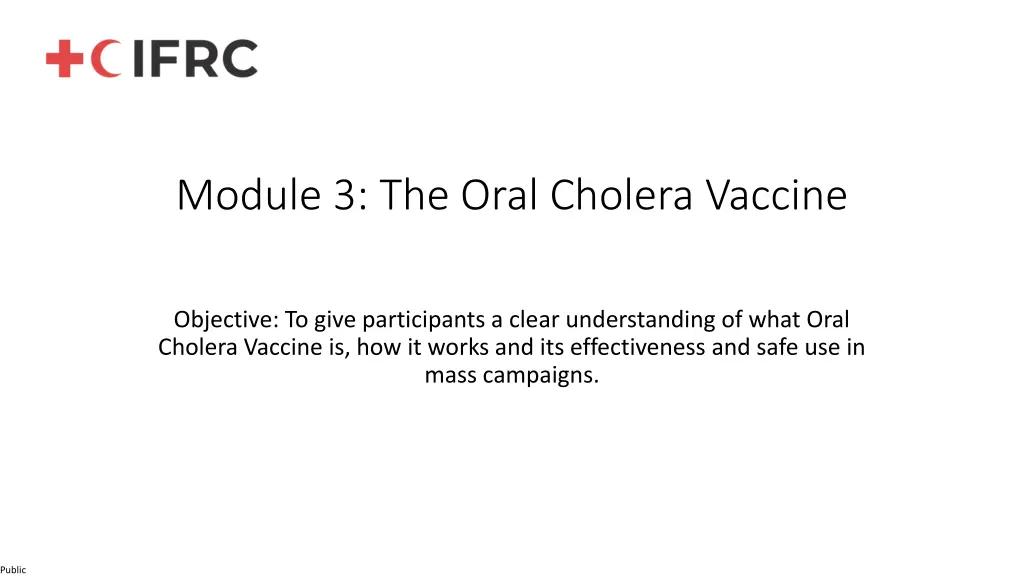
Understanding Oral Cholera Vaccine
Learn about the Oral Cholera Vaccine (OCV), how it protects against cholera, its effectiveness, safe usage in mass campaigns, eligible populations, and key information on Euvichol and Shanchol. Discover why OCV is taken orally, who should and shouldn't be vaccinated, and how it offers both direct and indirect protection. Stay informed to make informed decisions on vaccination.
Download Presentation

Please find below an Image/Link to download the presentation.
The content on the website is provided AS IS for your information and personal use only. It may not be sold, licensed, or shared on other websites without obtaining consent from the author. If you encounter any issues during the download, it is possible that the publisher has removed the file from their server.
You are allowed to download the files provided on this website for personal or commercial use, subject to the condition that they are used lawfully. All files are the property of their respective owners.
The content on the website is provided AS IS for your information and personal use only. It may not be sold, licensed, or shared on other websites without obtaining consent from the author.
E N D
Presentation Transcript
Module 3: The Oral Cholera Vaccine Objective: To give participants a clear understanding of what Oral Cholera Vaccine is, how it works and its effectiveness and safe use in mass campaigns. Public
Contents 1. What is OCV and what does it do ? 2. Why is cholera vaccine oral ? 3. Eligible population 4. Not recommended to vaccinate 5. Euvichol: key information 6. Shanchol: key information 7. Effectiveness and duration of protection 8. Vaccine safety 9. Reasons for people not coming forward to uptake the vaccine 10. Frequently asked questions 11. Activity Public
What is Oral Cholera Vaccine and how is it used Oral Cholera Vaccine (OCV) protects people from getting and developing severe forms of cholera and from spreading cholera to others. OCV consists of inactivated (killed) bacterial cells which cannot become virulent or cause cholera. OCV is not part of normal scheduled vaccination but targets a population in a certain area through campaigns. OCV offers direct protection to the taker of the vaccine and where more than 50% of the population targeted have the vaccine offers indirect protection because it reduces the amount of vibrio cholerae in the community. Indirect protection is especially important for those who cannot take the vaccine, mainly those under the age of 1 year. Public
Why is the Cholera Vaccine Oral ? Taking orally (by mouth) means that the vaccine sites itself in the intestine which is where vibrio cholerae locate themselves and multiply Easier to administer Reduced risk of transmitting blood borne infections Impacts other similar antigens such as Escherichia Coli which is a key cause of diarrhea in many parts of the world. Public
Eligible population EVERYONE aged 1 year and above. The intestine of babies under one year is not yet strong enough to cope with the vaccine. Pregnant and lactating women can be given the vaccine safely and should receive the vaccine The OCV remains in the intestine of the mother and does not pass into the blood, the placenta or the milk. ALWAYS FOLLOW THE RECOMMENDATION OF THE MOH Public
Not recommended to vaccinate Individuals who have an acute illness (not limited to cholera) should not be vaccinated, important to come back and vaccinate this individual after they recovered OCV vaccination must occur at least 14 days apart from COVID-19 vaccination Public
EUVICHOL PLUS VACCINE Must be administered orally (it should never be given intramuscularly, subcutaneously or intravenously) to anyone above the age of 1 year It is packed in a plastic tube of 1.5ml (monodose). The vaccinated person has to drink all the content not drops like polio! 2 doses, 2 weeks up to 6 months between each dose No fasting needed before vaccination No need to administer the vaccine with water The vaccine should be stored between 2 and 8 degrees Centigrade and should not be taken if frozen. More info: 2017 WHO Position Paper on Cholera Vaccines http://apps.who.int/iris/bitstream/10665/258763/1/WER9234.pdf?ua=1 Public
Shanchol It will be discontinued beginning in 2023 ! Can be given to those of 1 year or older, however it has been shown to be less effective for under five year old. Consists of two doses 2 doses, given 2 weeks up to 6 months between each dose. Onset of protection is 7 to 10 days after the second dose. No buffer solution. Swallow and follow with ingestion of water. Storage: store OCV vials between 2/8 c but it allows storing at room temperature (up to 37 c) for 14 days (2 weeks) Expiry after 30 months. Protection is 67% over 2 years 65% over 5 years. Public
Effectiveness and duration of protection Single dose effectiveness in individuals 1 years old was: 40% against all cholera episodes 63% against severely dehydrating cholera episodes 1 dose provides protection up to 6 months 2 doses are recommended for longest protection up 3 years The 2nd dose should be given at least 2 weeks and not more than 6 months from the 1st dose If the 2nd dose cannot be delivered within 6 months, 2 rounds of vaccination will need to be conducted to obtain protection of up to 3 years OCV is less effective in children < 5 years of age Public
Vaccine safety OCVs are very safe vaccines No serious adverse events reported from various mass vaccination campaigns (~25 million doses used globally) VERY rare minor adverse events (3-4%), such as Vomiting Mild gastrointestinal discomfort Mild diarrhoea Sometimes children do not like the taste and spit it out (adults don t like it either!) But this is not an adverse event In such an event, seek your supervisor for guidance! Public
What are the reasons for people not coming forward to be vaccinated Associate with sterilization Associate with other types of vaccination, mostly Covid-19 Do not consider the vaccination necessary for themselves because they have had cholera and survived Do not consider the vaccination necessary for themselves because they have not contracted cholera in past outbreaks Unaware that a campaign was going on Beliefs around other means of protection Public
Frequently asked questions Does the vaccination give me cholera ? If I have the vaccination can I still catch cholera ? If I have the vaccination can I still spread cholera to others ? Public
Frequently asked questions Does the vaccination give me cholera ? The vaccine uses killed bacterial cells which will not cause cholera. None has become ill with cholera from the vaccine. Sometimes there is a minor reaction to the vaccine in about 4 in 100 people who experience headache or slight fever but these symptoms are only experienced for a short time. If I have the vaccination can I still catch cholera ? The vaccine needs 7 to 10 days until the onset of protection and does not offer full protection. Usually it offers 67% protection if the 2 doses are uptake, so it is important for you and your family to continue to follow hygiene guidelines around water treatment, handwashing and food hygiene. If I have the vaccination can I still spread cholera to others ? The more people in a community that take it, the less vibrio cholerae will exist in that community. If 50% of people have had the vaccine they are already both giving themselves strong protection, but also those who have not taken, or who cannot take the vaccine. By taking the vaccine you are protecting the babies who cannot take it. You should encourage people to take it. Public
Activity C Activity C One key role of volunteers is to help mobilize and encourage people in the community to come forward and be vaccinated. In doing this volunteers need to have a good understanding of the vaccine and its use and have many arguments they can use to persuade people to get immunized. Your group will be given cards with statements of people who have said why they do not want to take the vaccination. By yourself or in pairs devise answers to these based on the information given in this module about the vaccine. Public


